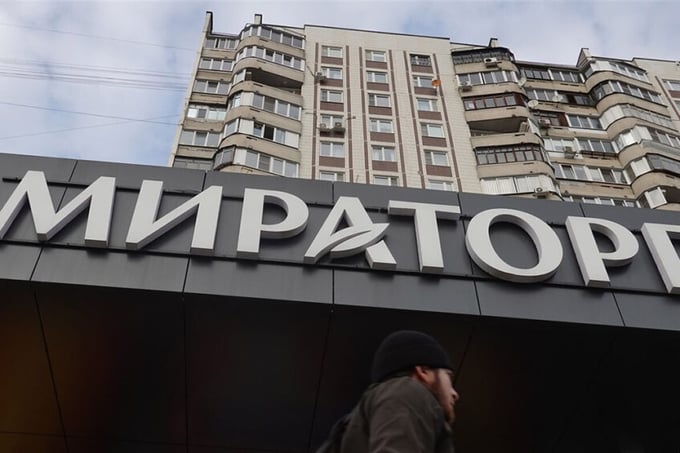November 27, 2025 | 22:23 GMT +7
November 27, 2025 | 22:23 GMT +7
Hotline: 0913.378.918
November 27, 2025 | 22:23 GMT +7
Hotline: 0913.378.918
The factory will produce the initial form of pharmaceutical heparin and hydrolysed feed protein.

Photo: ANP
With an investment cost of 1.6 billion roubles (US $16 million), Geparinus is the first high-tech project for pork mucosa processing in Russia, according to Miratorg. The company will process mucosa, which was previously exported to Europe, obtaining products with high added value.
The initial form of pharmaceutical heparin is used in manufacturing heparin, used as anticoagulants in surgery, in the treatment of pneumonia and as an antithrombic agent in heparin ointments. Hydrolysed feed protein in turn, is considered to be a side product of pharmaceutical heparin production.
Miratorg emphasised that Geparinus will process mucosa from the company’s slaughterhouses and from other market players. The factory is designed to process 40,000 tonnes of mucosa to manufacture 70 tonnes of pharmaceutical heparin and 8,000 tonnes of hydrolysed feed protein per year.
In 2021, Russia imported roughly 97% of pharmaceutical heparin from China. Pork mucosa in the previous years was primarily exported to Europe.
Russian agricultural holding RusAgro, one of the largest pork producers in the country, also considered establishing capacities for pork mucosa processing, Maxim Basov, general director of the company, disclosed. The company abandoned these plans in order “not to lose its focus.”
The construction of Geparinus started in the second quarter of 2021. Miratorg and Van Hessen originally planned to put the factory in operation by the end of 2022. The Russian meat industry welcomed he project. There were no similar projects in Russia, said Yuri Kovalev, general director of the Russian Union of Pork Producers (RUPP).
For a big company like Miratorg, it was logical and right to process all parts of the pork carcass to the maximum possible extent, said Sergey Yushin, head of the Russian National Meat Association. This strategy would let the company expand the range of products with a high added value, eventually improving business profitability.
(PP)

(VAN) A new study reveals how the simultaneous effects of ocean acidification, salinity and loss of oxygen are making the world more fragile.

(VAN) Hopes are growing that the creation of the first 3D turkey gut model could be a turning point in the battle against the virulent blackhead disease.

(VAN) Tyson, America’s biggest meat supplier, plans to shutter one of its largest beef processing plants as the industry continues to struggle with low cattle supplies and political pressure from Washington.

(VAN) New FAO study shows how digital solutions are empowering farmers and fishers to prevent losses and build resilient agrifood systems.

(VAN) Brazil's COP30 presidency pushed through a compromise climate deal on Saturday that would boost finance for poor nations coping with global warming but that omitted any mention of the fossil fuels driving it.

(VAN) Poultry farmers in the UK have been warned that they could face one of the worst winters yet for bird flu.

(VAN) Prices of main-crop paddy have risen sharply, with jasmine rice hitting 16,100 baht per tonne — the highest level in years.